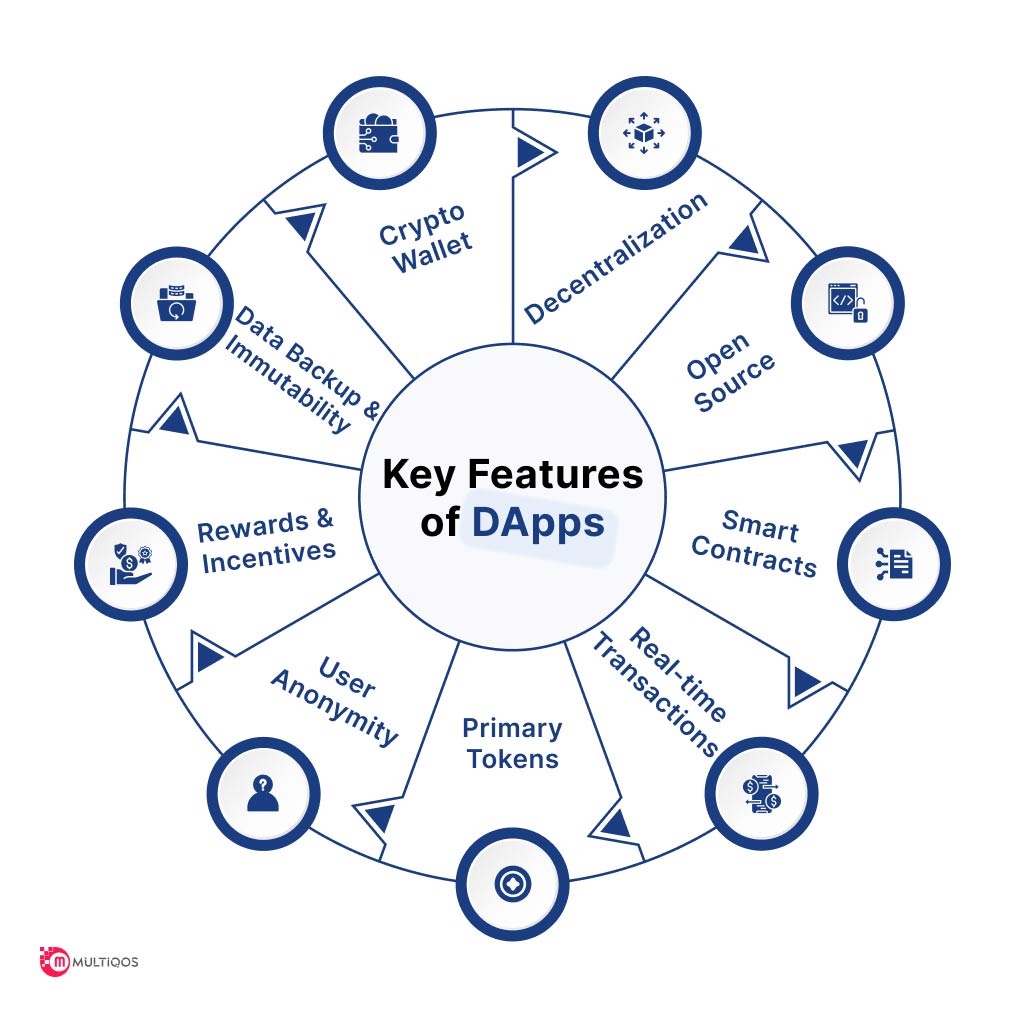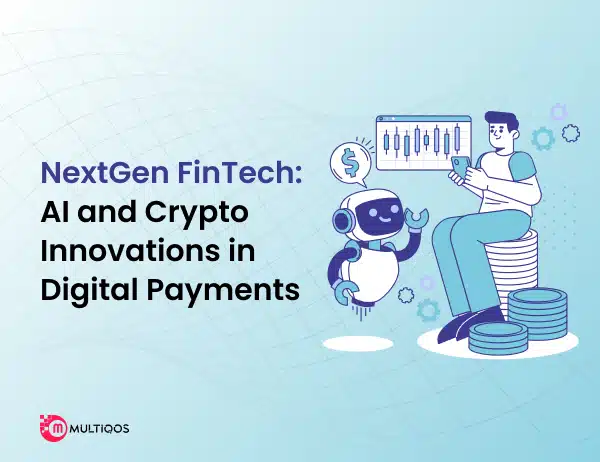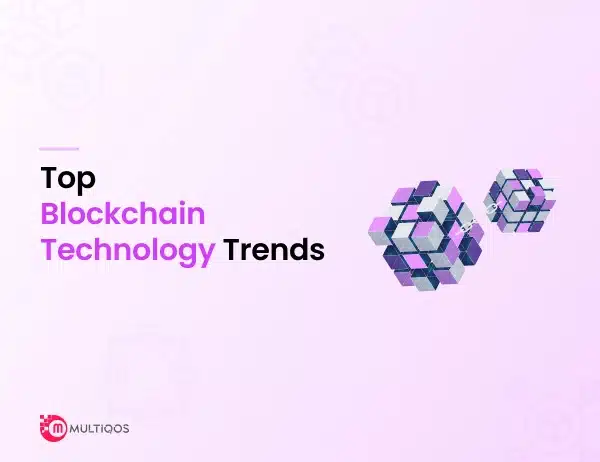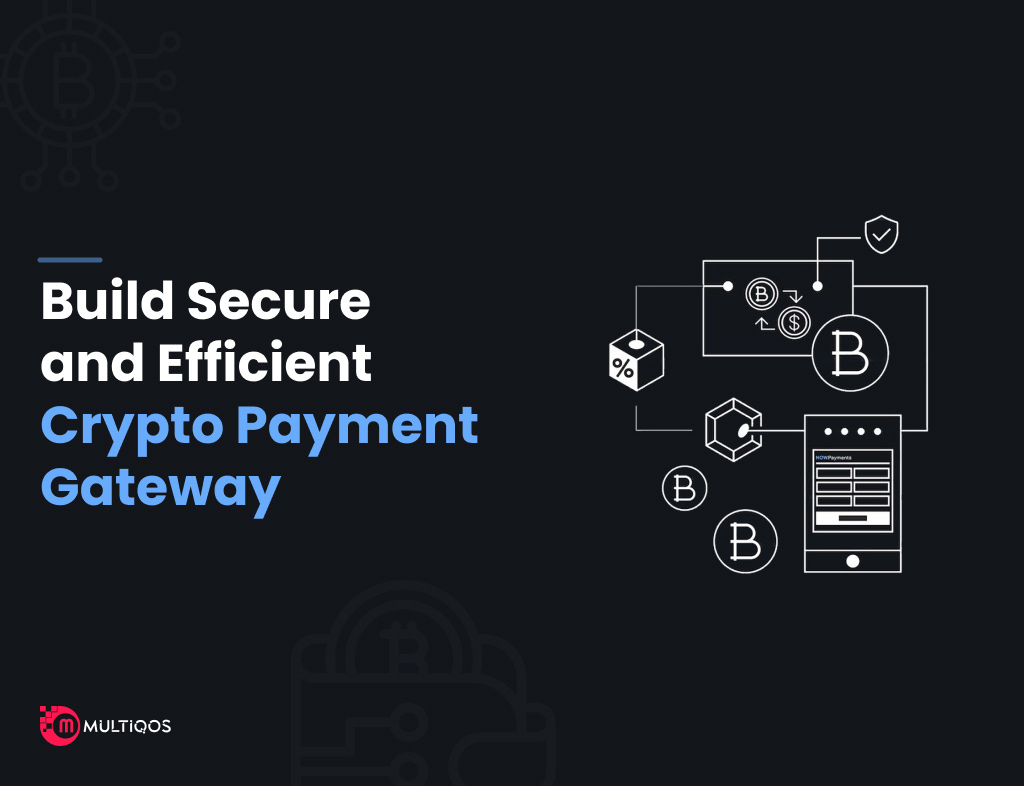How Much Does It Cost to Develop a Decentralized App (dApps)?
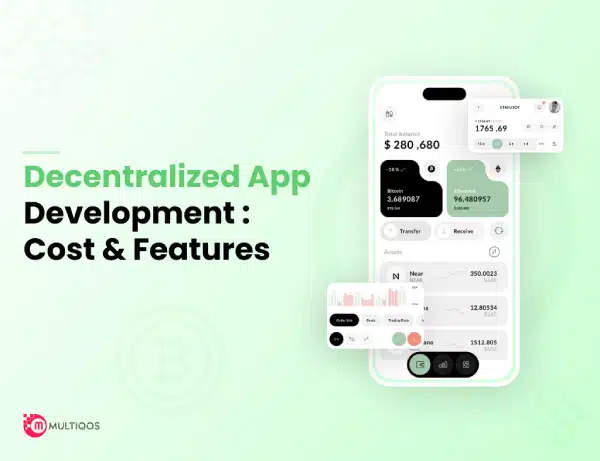
With blockchain technology becoming more and more popular, we are seeing a rising number of decentralized applications (dApps) that aim to transform the conventional Internet into the Web3 realm. These decentralized applications hold immense potential as they cater to the contemporary demands for decentralization and privacy among consumers, making them the future of the digital market.
Consequently, the expansion of the dApp market is truly remarkable. This industry has experienced a significant surge in just a few years, skyrocketing from $10.5 billion in 2019 to surpassing $30 billion by 2023. Furthermore, the daily user base for dApps exceeds 2.7 million individuals.
However, a constant question lingers: How much will decentralized app development cost? In this blog, we will cover the development process and cost of dApps so that you can also introduce it in your business. But before delving deep into that space, let us first understand Decentralized Apps and their market overview.
What is a Decentralized App?
Without requiring a centralized ledger that depends on a single validation point, decentralized apps (dApps) provide a direct and practical approach to managing numerous transactions. They eliminate the possibility of data ownership by others or censorship.
The best-decentralized applications run on a peer-to-peer or Blockchain network of computers, unlike a single computer. They provide users with similar utility and functionality as traditional apps. dApps distribute tokens to represent user ownership, and these tokens are assigned to system users based on a predefined algorithm, ensuring distributed ownership and control over the dApp. Some of the best-decentralized applications (dApps) leading the way in innovation and user empowerment: Uniswap, Brave Browser, Aave, Decentraland, CryptoKitties, Synthetix, Audius, SushiSwap and others.
What is a Centralized App?
Centralized apps are exclusively owned and managed by a single company, residing on either a single server or a cluster of servers. Upon download, users interact with a centralized server to exchange information and submit requests. However, the app’s functionality heavily relies on server availability, which means it won’t operate during server issues or crashes. The most popular examples of centralized apps include Facebook, Amazon, Instagram, Twitter, Netflix, Airbnb, WhatsApp, Google Maps and others.
Market Overview: Exploring the Landscape of Decentralized Applications
The technology sector, including the dApp market, is undergoing significant changes. Both established companies and new startups are actively exploring decentralized app development to address emerging challenges. A survey on decentralized apps predicts that by 2031, the industry will be worth millions of dollars. The projected period between 2023 and 2031 shows an extraordinary compound annual growth rate (CAGR).
To be more exact, the market for dApps was valued at $10.52 billion in 2019 and is anticipated to grow at a CAGR of 56.1% to $368.25 billion by 2027. The dApp industry is rising due to customers’ increasing need for transactions that happen more quickly and securely and for other advantages, including dependability, transparency, scalability, and flexibility.
Difference Between a Regular Mobile App and dApp
With the rise of blockchain technology, you might have come across the terms “dApp” and “App.” While they may sound similar, there are fundamental differences that set them apart in terms of architecture, ownership, and functionality. Let’s explore the distinctions:
Centralized App (App):
-
Centralized
Traditional apps are typically centralized and rely on a single server or a group of servers to function. Data and logic are stored and managed by the app’s owner.
-
Ownership
Apps are owned and controlled by a single entity, usually the company or developer that created it.
-
User Data
In a traditional app, user data is often stored on centralized servers, leading to potential security and privacy concerns.
-
Interactions
Interactions between users often happen through the app’s centralized server, requiring real-time data processing.
Decentralized App (dApp):
-
Decentralized
dApps are built on blockchain technology, making them decentralized and distributed across a network of computers (nodes). There is no single point of control, making them resistant to censorship and single-point failures.
-
Ownership
dApps are governed by smart contracts and open-source protocols, making them community-owned and maintained.
-
User Data
In a dApp, user data is stored on the blockchain, enhancing security and privacy as users have control over their data.
-
Interactions
Transactions and interactions in dApps happen directly on the blockchain, reducing the need for intermediaries and enabling trustless interactions.
What are the Essential Features of a Decentralized Application?
When adding features to your dApp with the help of a decentralized app development company, it is essential to consider user requirements. Here are the primary features to consider:
-
Crypto Wallet
Many ventures integrate a crypto wallet app into their decentralized app to enhance security. This feature also includes functions like transaction history review, asset management, and integration with decentralized crypto exchanges and other dApps.
-
Real-time Transactions
dApps must offer real-time transactions to function effectively. This feature is crucial for time-sensitive operations like gaming or trading and is executed accurately and swiftly with the assistance of smart contracts.
-
Decentralization
Whether it’s a DeFi development company or any other agency, ensuring that the solutions built are decentralized is crucial. As a result, there is no longer a need for a centralized authority, like corporate or governmental supervision.
-
Primary Tokens
dApps often utilize primary tokens, decentralized native cryptocurrencies that enable access to various software options. They are built on blockchain technology and are designed to foster relationships within a network governed by smart contracts
-
Open Source
Users may evaluate and contribute to the software because of the open-source nature of dApps, which promotes community involvement, openness, and innovation.
-
User Anonymity
User anonymity can be achieved by implementing cryptographic or pseudonymous protocols. This feature enhances privacy and security when tracking users’ data and activities
-
Smart Contracts
Without the need for middlemen, smart contracts automate the implementation of agreements between several parties. These self-executing and enforceable codes promote efficiency and faster transactions within the network.
-
Data Backup & Immutability
Immutability and data backup guarantee the integrity and security of the data kept on the blockchain. The distributed nature of blockchain ensures data replication across multiple nodes, eliminating the risk of data loss and making it non-editable or alterable.
-
Rewards & Incentives
Users that actively engage in network activities and support the success and expansion of the platform are given rewards and incentives. For example, Bitcoin offers incentives to users for processing blockchain transactions.
An Overview of dApp Tech Stack and Architecture
According to a smart contract development company, the essential architecture components of any dApp are as follows:
-
Underlying Blockchain
This forms the foundation of the dApp and serves as the decentralized ledger for recording transactions and maintaining the app’s state.
-
Smart Contracts
These are self-executing contracts with predefined rules and conditions encoded on the blockchain. They automate and enforce the agreement between parties involved in the dApp.
-
Front-end
This encompasses the user interface and experience of the dApp. Users may engage with the app and use its features and functionalities thanks to it.
-
Ethereum Virtual Machine (EVM)
An environment for executing smart contracts on the Ethereum blockchain, the EVM is a runtime environment. It ensures the consistent and secure execution of code across different nodes in the network.
Regarding the technology stack, the creation of a dApp typically involves the following:
-
Front-end Development
For this, HTML is used to structure the web pages, CSS to style them, JavaScript to provide the front-end logic, and TypeScript to manage the code. You can use pre-made frameworks like React or Angular to simplify front-end programming.
-
Blockchain
You have the flexibility to choose any blockchain as the foundation for your dApp. Popular choices for dApp development include Ethereum, Solana, Polkadot, Avalanche, TRON, Polygon, and EOS. To build the core architecture of your dApp and develop smart contract logic, you will need a specialist well-versed in the blockchain programming tech stack.
-
Web3 Tools
These frameworks (such as Truffle, Hardhat, Brownie, Embark, or OpenZeppelin) provide tools and utilities for interacting with the blockchain, deploying smart contracts, and integrating your dApp with the decentralized web (Web3).
By considering these components and utilizing the appropriate tech stack, you can effectively develop your dApp architecture and create top decentralized applications.
How Much Does It Cost to Develop dApps?
Cost considerations often play a crucial role for businesses with budget constraints. So, evaluating all project parameters is essential when opting for top mobile application development services.
-
Developer Size
The size of the development firm you choose impacts costs. Working with a small company with less than 50 people for a straightforward app can cost between $2,000 and $25,000. Choosing a mid-sized company raises the price by between $25,000 to $200,000. Prominent and renowned businesses charge substantially more, beginning at $300,000 to $450,000 for dApp development.
-
Industry:
The specific industry your business operates also influences the cost. Developing a healthcare dApp, for example, differs from creating a real estate dApp, and you should be prepared to pay extra for cutting-edge crypto projects.
-
App Complexity
The complexity of the dApp and the number of features it requires are significant factors in determining the price. A simple app may cost around $15,000 to $35,000, while a moderately complex app could range from $30,000 to $100,000.
-
App Type
The type of dApp product and the services it will provide users also affect the cost estimation. For instance, engaging a developer skilled in developing blockchain-based wallets is necessary for creating a cryptocurrency wallet. Launching an ICO or crypto exchange requires finding a provider specialized in those areas.
-
Developer’s Location
The location of the blockchain development services you choose also impacts the final cost of your dApp. In North America, dApp developers and engineers often charge over $70 per hour, compared to over $30 in Eastern Europe and over $10 in Asia. These varying rates result in 3x to 10x fluctuations in the final quote.
However, while discussing about the cost of dApp development with your blockchain development company, beware of vague pricing terms and fixed-budget projects, as hidden costs may arise, leading to exceeding your initial budget.
How MultiQoS Can Help in Building Decentralized Applications?
If you look forward to hiring dApps developers, you must connect with MultiQoS. We go beyond just developing and deploying your dApp. Our commitment extends to providing ongoing support and maintenance to ensure the seamless operation of your application. To make sure that your dApp runs smoothly and effectively, we are constantly ready to respond quickly to any questions or problems that could come up. With a deep understanding of blockchain technology and a passion for pushing boundaries, we collaborate closely to create decentralized apps that resonate with users, empower businesses, and drive growth.
Our approach combines cutting-edge technology, strategic thinking, and a user-centric mindset. From concept to deployment, we navigate the complexities of blockchain, smart contracts, and user experience to craft apps that stand out in the rapidly evolving decentralized landscape.
Whether you’re venturing into the world of decentralized finance, gaming, identity management, or any other industry, MultiQoS is here to guide you every step of the way. Join us in shaping the future of app development through innovation, collaboration, and unwavering dedication to excellence.
Conclusion
It is evident that creating a dApp may not be as costly or challenging as one might imagine. The dApp market is experiencing rapid growth and diversification to meet the needs and expectations of Web3 users seeking innovative applications. Therefore, you can quickly develop a robust, reliable, and widespread application by finding a reliable blockchain app development company.
Ready to Transform Your Business with Blockchain?
MultiQoS's blockchain experts build tailored solutions on ideal platforms for your business.
FAQ on Decentralized Application Development
Compared to traditional apps, dApps offer enhanced control, improved security, and increased privacy to their users.
You can hire blockchain developers since dApps offer a range of benefits, including transparency, decentralization, and heightened security through the use of blockchain technology.
No, Ethereum is not centralized. It’s a decentralized blockchain platform that operates on a global network of nodes. Ethereum’s decentralized nature makes it resistant to censorship and control by a single entity.
Ethereum hosts numerous DApps. Some popular examples include Uniswap (DEX), CryptoKitties (gaming), MakerDAO (lending), and Decentraland (virtual reality), among others. Ethereum’s flexibility and smart contract capabilities have led to a diverse range of DApps.
A DApp (Decentralized Application) is a broader concept, encompassing an entire application that runs on a blockchain. A smart contract, on the other hand, is a self-executing contract with terms directly written into the code. A DApp often utilizes multiple smart contracts to perform specific functions within the application.
Yes, DApps are considered a significant part of the future digital landscape. Their decentralized nature offers enhanced security, transparency, and user ownership of data. With blockchain technology, DApps are poised to assume a vital role across diverse industries.
Examples of decentralized applications include Uniswap (DEX), Brave Browser (privacy-focused browser), Augur (prediction markets), and Golem (distributed computing). These applications leverage blockchain’s decentralization for enhanced security and trust.
The cost of building a DApp can vary widely depending on factors like complexity, features, platform (Ethereum, Binance Smart Chain, etc.), and development team rates. It’s advisable to consult with developers or companies to get a tailored estimate based on your DApp’s specific requirements.
Numerous well-known decentralized applications contribute to the thriving dApp industry, including Uniswap, Compound, Minds, Steemit, Golem, OpenSea, RareNote, PancakeSwap, and others.
Get In Touch

